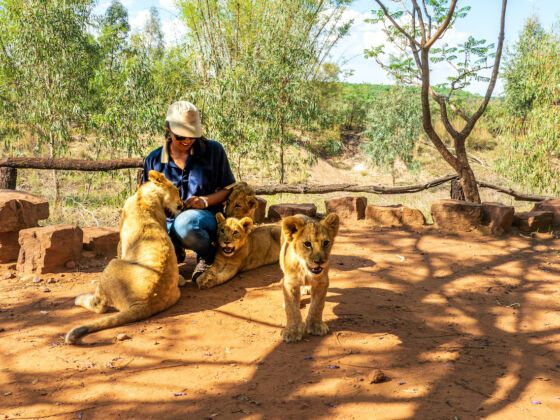Barbara Creecy, the minister of South Africa’s Department of Forestry, Fisheries, and the Environment formed a panel in October of 2019 to review South Africa’s policies concerning elephants, lions, leopards, and rhinos. Since then, the panel submitted a 600-page report that recommended banning the captive breeding of lions; canned lion hunts (trophy hunts where lions are in an enclosement); tourist interactions with captive lions; and the selling of lion parts.

Creecy has accepted the suggestions from the panel, and announced on May 2, 2021, that the captive lion industry “did not contribute to conservation and was doing damage to South Africa’s conservation and tourism reputation.” From here, South Africa’s parliament must decide if Creecy’s decision will become law, but since the recommendations have government support, this seems inevitable, prompting a success story for the conservation and welfare of the animals.
Captive lions are often found to live through inhumane conditions in overcrowded farms where they don’t receive proper nutrition or veterinary care. In breeding facilities, lion cubs are often stripped from their mothers within minutes after giving birth so they can get back to breeding more.
In comparison to the 2,000 wild lions in the country, captive lions are estimated to make up between 6,000 to 8,000 lions in the country, according to National Geographic.
Captive lion facilities often offer tourists the opportunity to bottle feed and pet cubs, as well as walk alongside the teenage animals. Once the lions are over a certain age, they are often sold to hunting facilities, and after the lion is killed, their bones are sold for traditional medicine. All of these practices will be banned under the new suggested policies.
“Thousands of farmed lions are born into a life of misery in South Africa every year in cruel commercial breeding facilities,” said World Animal Protection wildlife campaign manager Edith Kabesiime in an email to National Geographic. “This latest move by the government of South Africa is courageous — taking the first steps in a commitment to long-lasting and meaningful change. This is a win for wildlife.”
The report suggests that current bone stockpiles will be destroyed, and all lions currently captive will be humanely euthanized, as captive lions do not do well in the wild when they are released. No permits will be issued for the breeding, keeping, hunting, and use of captive lions for tourist entertainment. Current permits will also be revoked.
Putting the report’s recommendations “will result in both protection and enhancement of South Africa’s international reputation, repositioning the country as an even more competitive destination of choice for ecotourism and responsible hunting,” Creecy told ABC News.